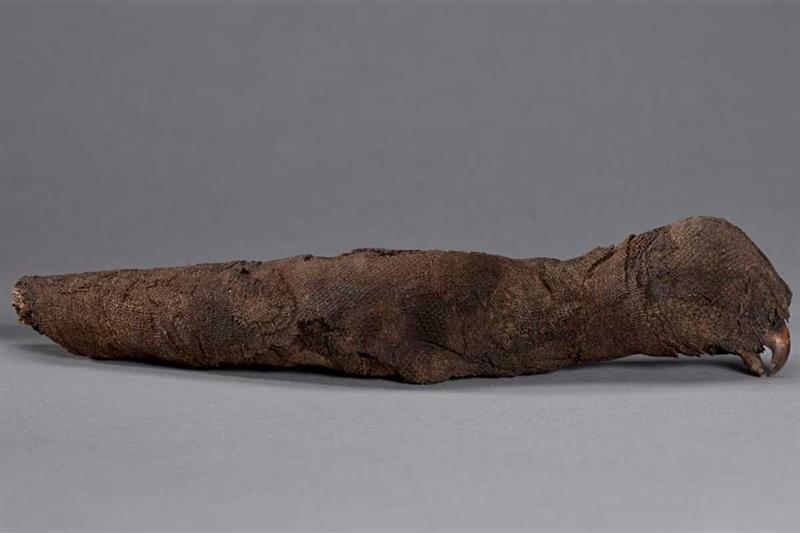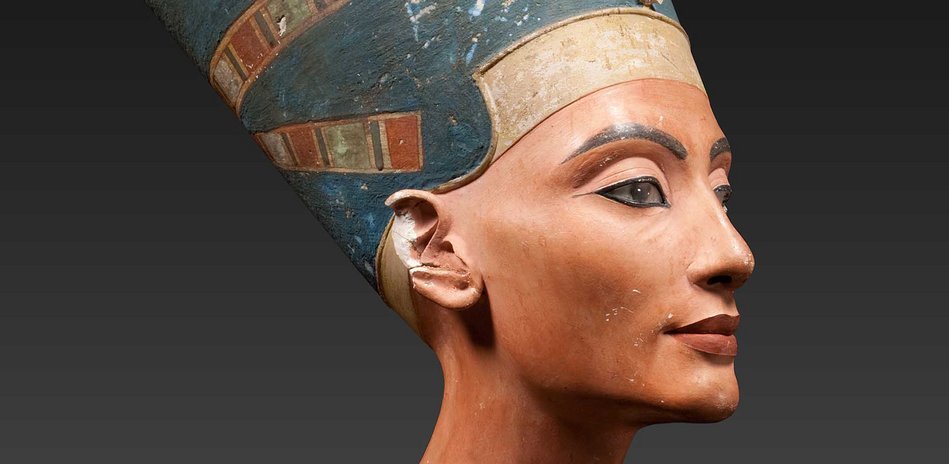New Zealand returned a set of mummified human remains to Egypt on Saturday, 25 November. The remains were previously exhibited at the Whanganui Regional Museum and Southland Museum in New Zealand.
In a statement released by the Ministry of Tourism and Antiquities official page, Mostafa Waziri, Secretary-General of the Supreme Council of Antiquities, has expressed his gratitude for the museums’ decision, touching on its significance in the preservation of global heritage.
Alongside the remains, repatriated artifacts include fragments of a mummified hawk, fabric remnants, and cartonnage.
The news, which was initially announced by Ahram, comes as part of a larger national effort demanding the return of stolen Egyptian artifacts from museums all over the world.

Why are there so many artifacts overseas?
During the 1850s, the Ottoman-Egyptian government extended an invitation to Auguste Mariette, a Frenchman renowned for his significant discoveries at the Saqqara necropolis, to assume the position of Egypt’s inaugural director of antiquities.
The French influence persisted for several decades, even retaining authority over the Department of Antiquities during the British occupation of Egypt in 1882. Notably, Egyptian Egyptologists faced systematic exclusion from the organization despite efforts by pioneers like Ahmed Kamal Pasha to secure representation in the predominantly colonialist department.
In the 19th century, Mariette wielded exclusive control over excavation sites and the artifacts discovered, channeling them to a museum he established in Cairo that would be the predecessor of the Egyptian Museum.
Nevertheless, his successors in the late 19th century faced the necessity of accommodating European archaeological teams in Egypt to maintain harmony with the colonial British government. To manage this, the department started handing out concessions in the form of renewable annual permits, granting archaeologists permission to excavate at various sites throughout Egypt. Foreign excavators were permitted to take half of their discoveries home, while the remaining half was required to remain in Egypt.
It was not until 1922 that this practice was banned. However, the damage was already done. Iconic artifacts such as the bust of Queen Nefertiti, the Zodiac Ceiling of Dendara, the Rosetta stone, and others had already been displayed in colonial museums across Europe.

Repatriation Effort
The Ministries of Foreign Affairs and Tourism and Antiquities have been working to return these stolen artifacts to Egypt for the past two decades. In recent years, the Egyptian people have begun to see the fruit of this effort.
In January, the Associated Press reported that Egypt received an ancient wooden sarcophagus previously on display at the Houston Museum of Natural Sciences. Waziri revealed that the sarcophagus dates back to ancient Egypt’s Late Dynastic Period.
Four ancient Egyptian artifacts that were smuggled from Egypt have been successfully repatriated from Italy in October, as stated by the Egyptian Ministry of Foreign Affairs. The recovery of these items was orchestrated by Egypt’s Ministry of Tourism and Antiquities in collaboration with the Supreme Council of Antiquities, whose officials received the artifacts at the headquarters of the Egyptian Ministry of Foreign Affairs.
In September 2022, the United States returned 16 stolen artifacts to Egypt, valued at over USD 4 million (EGP 123 million), as announced by Alvin L. Bragg Jr., Manhattan District Attorney, during the repatriation ceremony. Among the returned items were a painted coffin, a limestone plaque with hieroglyphic engravings, five illustrative linen fragments reflecting biblical beliefs, a bronze statue of the renowned ancient Egyptian musician Kemes, and a Roman-era portrait of a lady in Fayoum. Bragg emphasized the historical and cultural significance of these artifacts, highlighting their recovery following an extensive investigation into illegal traffickers and looters.
Egypt reclaimed 114 artifacts in 2021 that were illegally smuggled to France and three others taken to the UK. The recovery efforts involved extensive collaboration between teams from the three nations, spanning several months to track down the illicitly transported artifacts.
In 2019, a notable repatriation involved the recovery of a 2,100-year-old golden coffin belonging to a priest named Nedjemankh. The coffin, looted during the 2011 Revolution, was found in the Metropolitan Museum of Art in New York City. Manhattan District Attorney Cyrus Vance stated that the investigation revealed the coffin as part of a larger multinational trafficking ring involved in the theft of hundreds of antiquities. In the same year, Egypt successfully reclaimed a looted artifact from an auction in the UK, identified as a cartouche of King Amenhotep I.
These examples underscore ongoing efforts to combat illegal trafficking and safeguard Egypt’s rich cultural heritage.
The upcoming struggle
Zahi Hawass, renowned Egyptologist and former minister of antiquities, issued an appeal for the repatriation of Egyptian artifacts, notably the iconic Rosetta Stone, during an event at the British Museum.
This call came in September, 2023 in the aftermath of the theft of approximately 2,000 artifacts, including gold jewelry and gems, from the British museum. Hawass described the thefts as a “global catastrophe and a serious crime against world heritage.”
“I need these unique objects back and I will fight to return them back,” Hawass said in an interview on NPR. “Anything that left illegally, it should be back to Egypt.”
Hawass launched a change.org petition to “make sure museums stop the unethical practice of purchasing stolen objects.” More than 100,000 petitioners signed the appeal.
Another petition launched in 2022 by a group of distinguished archaeologists to recover stolen antiquities has garnered over 2,500 signatures. Collectively, these archaeologists are urging Egyptian Prime Minister Mostafa Madbouly to pursue the retrieval of the antiquities through diplomatic and legal channels.
“The Rosetta stone was undeniably a spoil of war and an act of plunder that was outlawed in the 17th and 19th centuries,” the petition reads. “The presence of these artifacts in the British Museum to this day supports past colonial endeavors of cultural violence and deprives Egypt as the country of origin of not only the physical return of these objects, but also of their important role as Egyptian cultural heritage that spans a millennia of rich history.”
Hawass has persistently advocated for the return of the Rosetta Stone, the Dendera Zodiac in the Louvre Paris, and the bust of Nefertiti in Germany for years. Despite these efforts, European museums have consistently resisted the calls for repatriation.
In a statement, the British Museum contended that the 1801 treaty bears the signature of an Ottoman admiral who fought alongside the British against the French. The museum argued that the admiral represented Egypt, as the Ottoman sultan nominally ruled Egypt during Napoleon’s invasion at that time.
In 2021, French President Emannuel Macron promised that his government would create a new law for the restitution of looted artifacts from colonized countries, but since then little effort has been made to bring this promise to reality.
German officials have dismissed the possibility of returning an ancient bust of Queen Nefertiti to Egypt, citing concerns about its fragility, as reported by BBC News. The officials assert that the bust was legally acquired by the Prussian state almost a century ago. Despite Egypt’s initial request for the return of the antiquity in 1930, successive German governments have consistently declined to comply.
“Egypt is one of the countries that’s had the most consistent, driven repatriation effort,” said Alice Procter, a historian of material culture and the author of The Whole Picture: The Colonial Story of the Art in Our Museums and Why We Need to Talk About It.
“The Egyptian government has been largely pretty successful in getting objects returned, and that’s partially due to the fact that so many pieces have been taken illegally in a very easily documented way.”






Comments (0)